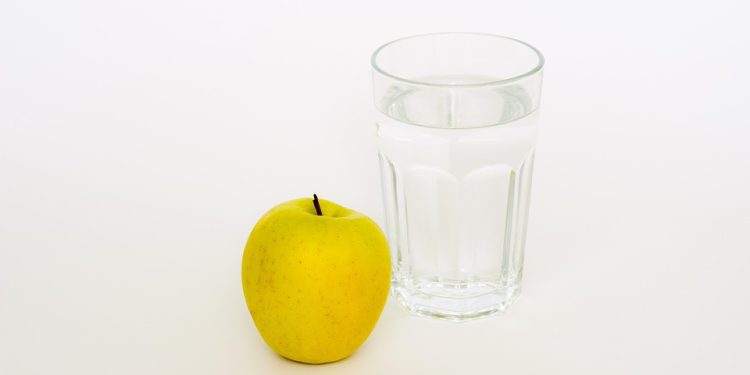Unlocking Weight Loss: Finding the Best Diet for You
Losing weight can feel like navigating a maze, with countless diets promising quick results. But the truth is, there’s no one-size-fits-all solution. The “best” diet for weight loss is the one you can stick to long-term, that fits your lifestyle, and that promotes overall health and well-being. This article explores popular and effective approaches to weight loss, empowering you to make informed choices and achieve sustainable results.
Understanding the Fundamentals of Weight Loss
At its core, weight loss boils down to creating a calorie deficit – burning more calories than you consume. This forces your body to tap into its stored fat reserves for energy. However, it’s crucial to approach this with a balanced perspective. Severely restricting calories can lead to muscle loss, nutrient deficiencies, and a slowed metabolism, ultimately hindering long-term success. Focus on sustainable, healthy eating habits rather than drastic measures.
Popular and Effective Weight Loss Diets: A Closer Look
Here are some well-researched diet plans that have proven effective for weight loss, along with their key features and considerations:
1. Mediterranean Diet: Embracing a Healthy Lifestyle
The Mediterranean diet isn’t just a diet; it’s a lifestyle. It emphasizes:
- Abundant fruits and vegetables: Rich in vitamins, minerals, and fiber.
- Whole grains: Providing sustained energy and satiety.
- Legumes: A great source of plant-based protein and fiber.
- Healthy fats (olive oil, avocados, nuts): Benefiting heart health and promoting fullness.
- Fish and poultry: Prioritized over red meat.
- Moderate dairy: Typically in the form of yogurt and cheese.
Benefits: Supports heart health, reduces inflammation, and promotes sustainable weight loss. Its flexibility makes it easier to adhere to long-term. It naturally reduces your intake of processed foods, refined carbs, and unhealthy fats, contributing to a calorie deficit without feeling deprived.
2. Low-Carbohydrate Diets (Keto, Atkins, Low-Carb): Tapping into Fat Burning
Low-carb diets restrict carbohydrate intake, forcing the body to enter a metabolic state called ketosis, where it burns fat for fuel. Variations include:
- Ketogenic Diet (Keto): Very low carb (typically under 50 grams per day), high fat, and moderate protein.
- Atkins Diet: Phases of carb restriction, gradually increasing carb intake over time.
- General Low-Carb Diet: Reduces carb intake to a moderate level (e.g., 100-150 grams per day).
Benefits: Can lead to rapid weight loss, improved blood sugar control, and reduced appetite. The focus on protein and fat can be very satiating, reducing overall calorie consumption. For example, a breakfast of eggs and avocado can keep you feeling full for hours, preventing mid-morning snacking.
Considerations: Keto flu (initial side effects like fatigue and headache), nutrient deficiencies if not carefully planned, and potential challenges for long-term adherence. Focus on healthy fats like avocados, nuts, and olive oil rather than processed meats and saturated fats. Consult a doctor before starting a keto diet, especially if you have underlying health conditions.
3. Intermittent Fasting (IF): Strategic Eating Patterns
Intermittent fasting involves cycling between periods of eating and voluntary fasting on a regular schedule. Common methods include:
- 16/8 Method: Fasting for 16 hours each day and eating within an 8-hour window.
- 5:2 Diet: Eating normally for five days of the week and restricting calories to 500-600 on the other two days.
- Eat-Stop-Eat: Fasting for 24 hours once or twice per week.
Benefits: Can simplify eating patterns, reduce overall calorie intake, and improve insulin sensitivity. Some studies suggest it can also promote cellular repair processes.
Considerations: May not be suitable for everyone, especially those with a history of eating disorders or certain medical conditions. It’s crucial to eat a balanced and nutritious diet during the eating windows. For example, using the 16/8 method, you might eat your first meal at noon and your last meal by 8 pm. Focus on whole, unprocessed foods during your eating window.
4. Plant-Based Diets (Vegan, Vegetarian): Harnessing the Power of Plants
Plant-based diets emphasize plant-derived foods and minimize or eliminate animal products. Variations include:
- Vegan: Excludes all animal products, including meat, dairy, eggs, and honey.
- Vegetarian: Excludes meat but may include dairy and eggs.
- Flexitarian: Primarily plant-based but occasionally includes meat or fish.
Benefits: Rich in fiber, vitamins, and minerals, promoting satiety and overall health. Can lower the risk of heart disease, type 2 diabetes, and certain cancers. Plant-based diets are often naturally lower in calories and fat, contributing to weight loss. A sample vegan meal might consist of a lentil soup with a side of quinoa and steamed vegetables.
Considerations: Requires careful planning to ensure adequate intake of essential nutrients like vitamin B12, iron, and omega-3 fatty acids. Supplementation may be necessary. Ensuring adequate protein intake is also crucial; good sources include lentils, beans, tofu, and tempeh.
5. DASH Diet (Dietary Approaches to Stop Hypertension): A Holistic Approach
Originally designed to lower blood pressure, the DASH diet emphasizes:
- Fruits, vegetables, and whole grains.
- Lean protein sources (fish, poultry, beans).
- Low-fat dairy.
- Limited saturated and trans fats, sodium, and added sugars.
Benefits: Promotes heart health, lowers blood pressure, and can support weight loss by encouraging healthy eating habits and portion control. The focus on whole, unprocessed foods naturally reduces calorie intake.
Considerations: Requires careful attention to sodium intake and reading food labels. It’s a lifestyle change rather than a quick fix. For example, replacing processed snacks with fruits and vegetables and opting for whole-grain bread over white bread can significantly contribute to weight loss.
Beyond Diet: Essential Factors for Weight Loss Success
While diet is a crucial component of weight loss, it’s not the only factor. Consider these additional elements for a holistic approach:
1. Regular Exercise: Burning Calories and Building Muscle
Physical activity is essential for burning calories, building muscle mass, and improving overall fitness. Aim for at least 150 minutes of moderate-intensity aerobic exercise or 75 minutes of vigorous-intensity exercise per week. Incorporate strength training exercises two to three times per week to build muscle, which can boost your metabolism.
Example: A brisk 30-minute walk most days of the week, combined with weightlifting sessions targeting major muscle groups twice a week.
2. Adequate Sleep: Regulating Hormones and Appetite
Sleep deprivation can disrupt hormones that regulate appetite, leading to increased cravings and overeating. Aim for 7-9 hours of quality sleep per night to support healthy weight management. Establish a consistent sleep schedule and create a relaxing bedtime routine.
3. Stress Management: Controlling Cortisol Levels
Chronic stress can elevate cortisol levels, which can promote fat storage, particularly in the abdominal area. Practice stress-reducing techniques like yoga, meditation, or spending time in nature. Mindfulness exercises can help you become more aware of your eating habits and reduce emotional eating.
4. Hydration: Boosting Metabolism and Curbing Appetite
Drinking plenty of water throughout the day can help you feel full, boost your metabolism, and flush out toxins. Aim for at least 8 glasses of water per day. Sometimes, thirst is mistaken for hunger, leading to unnecessary snacking. A glass of water before a meal can also help reduce portion sizes.
5. Mindful Eating: Paying Attention to Your Body’s Cues
Mindful eating involves paying attention to your body’s hunger and fullness cues, eating slowly, and savoring each bite. This can help you avoid overeating and develop a healthier relationship with food. Put away distractions like your phone or television during meals and focus on the taste, texture, and aroma of your food.
The Importance of Personalized Guidance
It’s important to remember that everyone’s body is different, and what works for one person may not work for another. Consulting with a registered dietitian or healthcare professional can provide personalized guidance based on your individual needs, goals, and health conditions. They can help you develop a sustainable weight loss plan that incorporates a balanced diet, regular exercise, and healthy lifestyle habits.
Conclusion: A Sustainable Path to a Healthier You
The best diet for weight loss is the one that aligns with your lifestyle, preferences, and health goals. Focus on making sustainable changes to your eating habits, incorporating regular exercise, and prioritizing overall well-being. Remember that weight loss is a journey, not a destination. Be patient with yourself, celebrate your progress, and don’t be afraid to seek support along the way. By adopting a holistic approach to weight management, you can achieve lasting results and improve your overall health and quality of life.
Frequently Asked Questions (FAQs)
Here are some common questions about weight loss and dieting:
- What is the best diet for quick weight loss? While low-carb diets like keto can lead to rapid initial weight loss, they may not be sustainable long-term and can have potential side effects. Focus on gradual and sustainable weight loss through a balanced diet and regular exercise.
- How many calories should I eat to lose weight? This depends on factors like your age, sex, activity level, and current weight. A general guideline is to create a calorie deficit of 500-750 calories per day to lose 1-2 pounds per week. A registered dietitian can help you determine your individual calorie needs.
- Is it safe to lose weight quickly? Losing weight too quickly can lead to muscle loss, nutrient deficiencies, and a slowed metabolism. Aim for a sustainable rate of weight loss of 1-2 pounds per week.
- What are some healthy snack options for weight loss? Good snack choices include fruits, vegetables, nuts, seeds, Greek yogurt, and hard-boiled eggs. Choose snacks that are high in protein and fiber to promote satiety.
- How can I control cravings? Identify your triggers for cravings and develop strategies to manage them. This might include drinking water, going for a walk, or distracting yourself with an activity. Eating regular meals and snacks can also help prevent cravings.
- What is the role of exercise in weight loss? Exercise helps you burn calories, build muscle mass, and improve your overall fitness. Aim for a combination of aerobic exercise and strength training.
- Can I lose weight without exercise? While diet is the primary driver of weight loss, exercise is important for overall health and can help you maintain your weight loss in the long term.
- Are there any supplements that can help with weight loss? Some supplements may have a modest effect on weight loss, but they are not a substitute for a healthy diet and regular exercise. It’s important to talk to your doctor before taking any weight loss supplements.
- How can I stay motivated to lose weight? Set realistic goals, track your progress, find a support system, and reward yourself for your accomplishments. Remember that setbacks are normal, and don’t let them derail your progress.
- What should I do if I plateau during weight loss? If you hit a plateau, re-evaluate your diet and exercise plan. You may need to adjust your calorie intake or increase your activity level. Make sure you are still tracking your food intake accurately and consistently. Consider consulting with a registered dietitian or personal trainer for personalized guidance.












